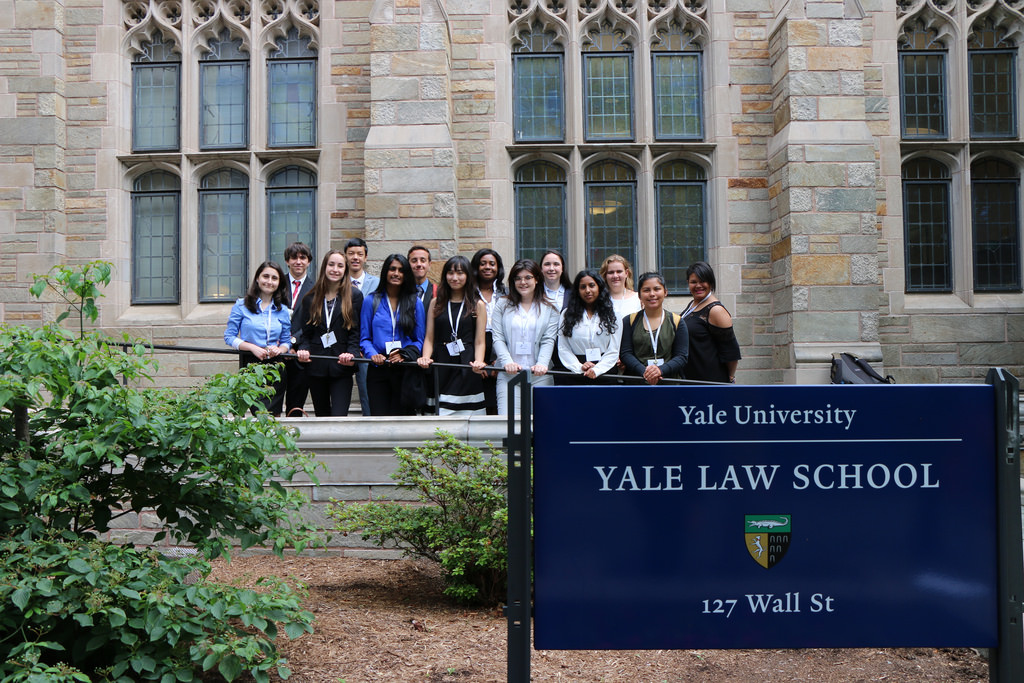
When interviewing for law schools, experts believe it is crucial to demonstrate that you are a promising candidate.

Trial attorneys and appellate attorneys are often questioned by judges. Therefore, lawyers cannot hesitate when speaking; they must think quickly and present compelling arguments.
Some of the most influential lawyers in U.S. history were renowned for their ability to deliver captivating speeches and quick-witted responses. Justice Thurgood Marshall, before joining the U.S. Supreme Court, was known for his professional litigation skills and powerful speeches in civil rights cases. Lawyer Clarence Darrow, the trial lawyer in the most controversial legal disputes of the early 20th century, such as the “Scopes Trial” on evolution, was praised for his impactful speeches.
Law school admissions committees seek students with potential and a long-term commitment to a career in law. That’s why they look for candidates who can communicate effectively with those in authority and inspire others through persuasive speech. Law schools also have another reason for selecting students based on their oratory skills: the ability to use language and convey ideas is a crucial part of many legal professions.
Attorney Andrew Ittleman, founder and partner of the law firm Fuerst Ittleman David & Joseph in Miami, believes that demonstrating composure during a law school admissions interview is essential.
Ittleman states, “When you are in an interview or in court, you must know how to dig deeper into the information.” “This is not a regular test… No one is grading you like they would on a test. They just want to know who you are.”
Ittleman advises law school applicants to practice a few interviews with people they trust who can provide honest feedback. He believes that practicing interviews helps students find the right words to clearly express their thoughts.
With that in mind, the attorney suggests that law school applicants should prepare answers to the following questions before going to an interview.

Experts believe this is a question that law applicants should have a convincing answer for because law schools know that students may choose law school as a way to delay making a career decision.
Kathleen Boozang, Dean of Seton Hall University School of Law in New Jersey, says, “We always aim to create students who genuinely want to become lawyers because I believe that when we are passionate about the work we do, we will truly become happy lawyers.” “So I look forward to meeting students who enroll in law school because they are excited about studying law, not because they have nothing else to do.”

Ella Tyler, a retired attorney and current tutor for Varsity Tutors, shares, “Students attending the interview should know everything on the school’s website, the school’s achievements, who the prominent professors are,…” “Law requires preparation and research, so if you can demonstrate that in your interview, it will be evidence that you have the qualities of a future lawyer.”

You might be asked: Why do you need a law degree? What can a law degree allow you to do, and what can it not if you don’t have one?
Experts say law schools are looking for applicants who can clearly articulate their intentions for what they plan to do with a law degree, as these schools do not want students who are unclear about investing the time, effort, and cost that law school demands.
Boozang says, “Law school is hard; it requires a lot of work, and you have to love it,” “You have to have passion, you really have to want to do it, and I want to make sure students know what they are getting into when they pursue law.”

If you are not currently reading a book, you may be asked a different question: Who is your favorite author and why?
Boozang says she often asks questions like this to see if a law applicant enjoys writing and can form a coherent argument about what they have read. The ability to read and analyze a text is a very important skill for a lawyer.
Boozang believes this question also reveals whether the applicant has a well-rounded personality, including academic interests. She always advises applicants to read the news and continue engaging in extracurricular activities during the law school admissions process, as it gives them more interesting topics to discuss when asked personal questions.
“I emphasize the importance of young people considering law school knowing a lot about the world around them,” she says.

Boozang believes this question allows applicants to discuss a topic they are passionate about and knowledgeable in. This question is asked to see if you have the mindset of a future lawyer.
Boozang says a law applicant should be prepared to answer follow-up questions about their paper, which could lead to a back-and-forth discussion with the interviewer. She notes that the topic or thesis of the paper is not as important as the applicant’s ability to clearly explain their ideas, make a strong argument, and present a coherent rationale.

Experts say questions like this reveal what makes law school applicants stand out compared to other candidates during the admissions process.
Nyana Abreu, an attorney at Sequor Law in Miami, says the key to answering this question is to talk less about academic statistics and more about who you are.
“It’s not really an academic question, but I think it’s a question that confuses many applicants – this is your chance to talk about yourself, the school doesn’t want to know your GPA, and they don’t want to know your test scores,” she says. “They already know all that from your paperwork. They want to learn something memorable about you. You don’t need to spend a lot of time telling the interviewer why you’re smart and hardworking. You should share with them why people would want to spend time with you.”